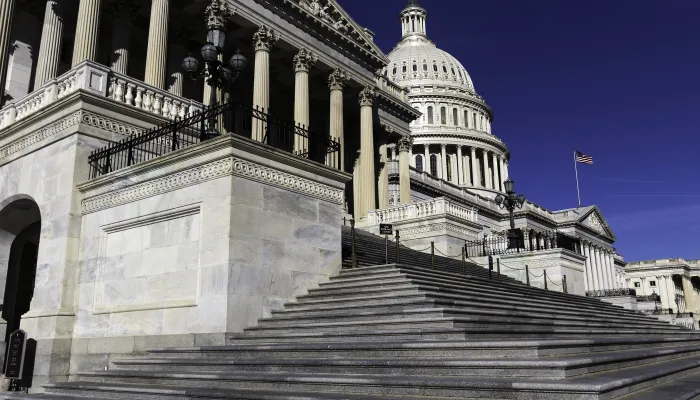Election Analysis from a Fiscal Perspective
The fiscal implications of Tuesday’s election are enormous. With pressure to improve the economy continuing to mount, the 112th Congress will arrive deeply divided, with one party controlling the House, another the Senate and the White House.
Exit polling makes it clear that the economy was the top concern for voters. But the electorate was much less clear about the best fiscal course in these trying economic times, with slightly more favoring reducing the federal budget deficit over increasing federal spending to spark job growth. (Actually, both sides are correct, and both need to be part of a comprehensive plan to promote growth and control the debt.) Overwhelming majorities in the exit poll signaled their disapproval of how Congress is doing its job and expressed negative views of the way the federal government in general is working.
The new Congress must deal with each of these issues head on. An early test will occur when President Obama sends his Fiscal 2012 budget to Capitol Hill in February. The budget process will be a pivotal opportunity for lawmakers to lay out a fiscal framework that supports the economic recovery in the short term while putting the country on a sustainable fiscal course in the longer term. Accomplishing this could convince markets that the United States is serious about reducing its long-term debt, which will aid the economy by keeping interest rates lower. Such an achievement also would help convince a highly-skeptical public that Washington is capable of addressing pressing problems effectively.
Such a huge undertaking will require creating a more transparent, accountable and effective budget process—one that requires fiscal goals be set and properly enforces those goals to keep us on track. The current process obviously isn’t up to the task—neither house of Congress was able to produce a budget blueprint this year. All of the newly elected legislators who ran on platforms of fiscal responsibility and fixing Washington should commit to reforming the dysfunctional budget process. The Peterson-Pew Commission on Budget Reform will soon release a detailed report with recommendations on creating a better budget system.
Dealing with the budget deficit was a primary campaign theme. Yet few candidates offered specific proposals to close the fiscal gap. Many candidates ran on pledges of what they would not do, such as raise taxes or cut Social Security benefits. The track record of candidates who signed those pledges was mixed (see below), though, of course, there were several factors contributing to the success or failure of any given candidate—and in a few cases more than one candidate for a particular seat signed the pledge. It is time for policymakers to offer and constructively discuss solutions. We have offered some ideas in our Let’s Get Specific series of papers, and more will follow.
In addition to the many new faces that will populate the incoming Congress, there will be new chairmen of key House committees dealing with fiscal policy due to the change of party control. In addition, many committee members were ousted by voters.
Congressman Paul Ryan (R-WI) is in line to become chairman of the House Budget Committee. He has authored a detailed fiscal Roadmap and perhaps his ascendancy will trigger a debate that produces a bipartisan long-term fiscal plan. The current chairman, John Spratt (D-SC), lost his reelection bid. The chairman of the House Appropriations Committee, David Obey (D-WI), retired in the face of a strong challenge and several committee members lost in their reelection bids (see below). Traditionally, appropriators have leveraged their ability to “bring home the bacon” to constituents as a major attribute. If the election results cause lawmakers to reconsider the value of pork spending to their reelection prospects, that could further the cause of fiscal responsibility. With the new Republican majority, it is likely that either Jerry Lewis (R-CA) or Harold Rogers (R-KY) will chair the committee. The new chairman will face intense pressure to control spending. Congressman Dave Camp (R-MI) is slated to take the helm of the tax-writing Ways and Means Committee. The chairman of the Social Security subcommittee, Earl Pomeroy (D-ND), lost his re-election bid.
Some key numbers from the election:
• Number of House Appropriations Committee members who lost reelection (in the primary or general election) – 8*
• Number of House Budget Committee members who lost reelection – 5*
• Number of losing candidates on the ballot for federal office in this election who signed the pledge not to cut any Social Security benefits – 113 out of 228*
• Number of losing candidates on the ballot for federal office in this election who signed the “No New Taxes” pledge – 125 out of 386*
*Some races remain undecided; those results could increase the total
President Obama, presumptive new Speaker of the House, John Boehner (R-OH), and Eric Cantor, likely new House Majority Leader, all sounded conciliatory in the aftermath of the election. Common themes expressed by all three were the need for fiscal responsibility and reforming how Washington operates. Working together to fix the budget process and promote a fiscal plan can achieve those common goals and lead us to renewed prosperity.

